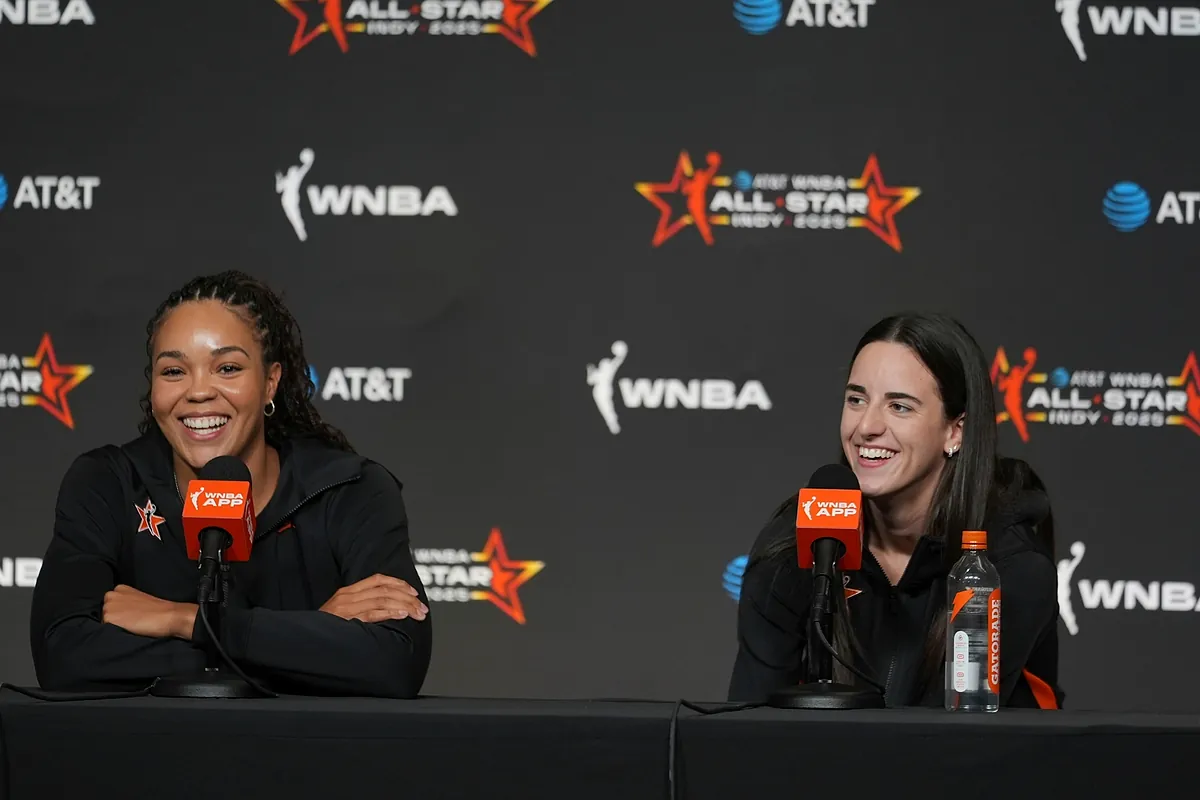
The WNBA has seen its fair share of disputes, but recent tensions between star forward Napheesa Collier and Commissioner Cathy Engelbert may represent a pivotal moment in the league’s evolution.
Collier, Vice President of the WNBPA Executive Committee, didn’t hold back in her postseason exit interview, accusing Engelbert of tone-deaf leadership and alleging behind-the-scenes comments that have ignited league-wide controversy.
Engelbert’s alleged “be grateful” remark sparks outrage
Collier claimed Engelbert had said Caitlin Clark should be “grateful” for earning millions in endorsements, crediting the WNBA for giving her a platform.
If true, the comment would suggest a dismissive view of Clark’s individual marketability and a broader lack of appreciation for the athletes driving the league’s current success. Engelbert has denied making such a statement, calling Collier’s claims inaccurate in a press conference before the WNBA Finals.
What followed has only deepened the divide. Collier, voicing frustration over a lack of direct communication from the commissioner, revealed that she had not received a call or text following her statements, only a message relayed through Engelbert’s deputy.
Even more, she canceled a planned meeting with Engelbert, signaling a breakdown in dialogue during one of the most crucial moments in WNBA labor relations.
The backdrop to all this is the ongoing negotiation of the league’s collective bargaining agreement. With tensions already high between players and management, Collier’s candid remarks have amplified the possibility of a future lockout if no resolution is reached.
Caitlin Clark navigates the fallout with caution
Clark, the rising superstar at the center of the controversy, took a measured and respectful approach when asked about the incident.
Speaking publicly, she praised Collier’s leadership and acknowledged that many of the concerns raised were legitimate. Without directly addressing Engelbert’s alleged comments, Clark emphasized the need for strong leadership across all levels of the league.
“I have great respect for Phee, and I think she made a lot of very valid points,” Clark said, adding that leadership decisions need to reflect the league’s growth and the contributions of its players. She also revealed that she had not been contacted by Engelbert regarding the situation, nor had she been made aware of the specific comments allegedly made about her.
Clark’s response was widely seen as a call for unity and reform, rather than confrontation. Still, her words echoed the broader sentiment among players: the WNBA is entering a transformative era, and leadership must evolve with it.
As the CBA negotiations loom and frustrations simmer, the league stands at a crossroads. The canceled meeting between Collier and Engelbert could be a missed opportunity, or a sign of deeper fractures to come. What happens next will likely shape the future of professional women’s basketball in America.
This news was originally published on this post .





Be the first to leave a comment